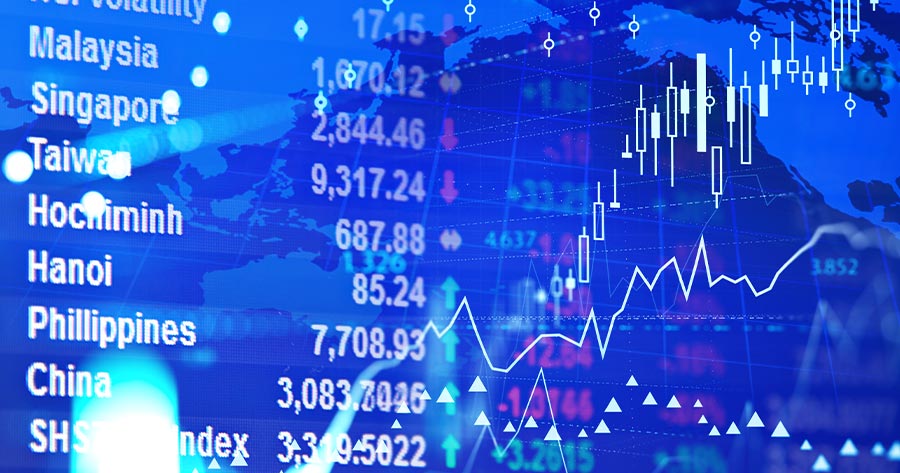On Wednesday morning (5 November, 9:24 AM, GMT+7, Bangkok time), major indices in Asia Pacific tracked losses on Wall Street as traders exited positions in AI-focused shares.
Notably, Goldman Sachs and Morgan Stanley advised investors to prepare for a potential market downturn in the coming two years. Andrew Jackson, head of Japanese equity strategy at Ortus Advisors, stated that the markets experienced a sell-off as the widespread rally paused following remarks from the CEOs and Capital Group, suggesting a market correction was anticipated.
Japan’s NIKKEI dropped by 4.18% to 49,343.84. South Korea’s KOSPI slumped by 4.99% to 3,916.25, and Australia’s ASX 200 decreased by 0.63% to 8,758.40.
As for stocks in China, Shanghai’s SSEC slid by 0.46% to 3,941.90. Shenzhen’s SZI contracted by 1.10% to 13,030.18, and Hong Kong’s HSI fell by 1.11% to 25,663.47.
The U.S. stock markets edged down on Tuesday as the Dow Jones Industrial Average (DJIA) declined by 0.53% to 47,085.24. NASDAQ plummeted by 2.04% to 23,348.63, and S&P 500 lost 1.17% to 6,771.55. VIX surged by 10.66% to 19.00.
As for commodities, oil prices settled lower on Tuesday, pressured by disappointing manufacturing data and a strengthening U.S. dollar, which dampened demand prospects. The move by OPEC+ to hold off on increasing output during the first quarter of next year was seen by some as an indication that the group is cautious about the risk of oversupply. Brent crude futures ended the session down 0.7%, or 45 cents, at $64.44 per barrel, while U.S. West Texas Intermediate crude fell 0.8%, or 49 cents, to settle at $60.56 per barrel.
This morning, Brent crude futures shrank 38 cents, or 0.59%, to $64.06 per barrel, and the WTI lost 42 cents, or 0.69%, to $60.14 per barrel.
Meanwhile, gold futures diminished by 0.29% to $3,948.90 per Troy ounce.





